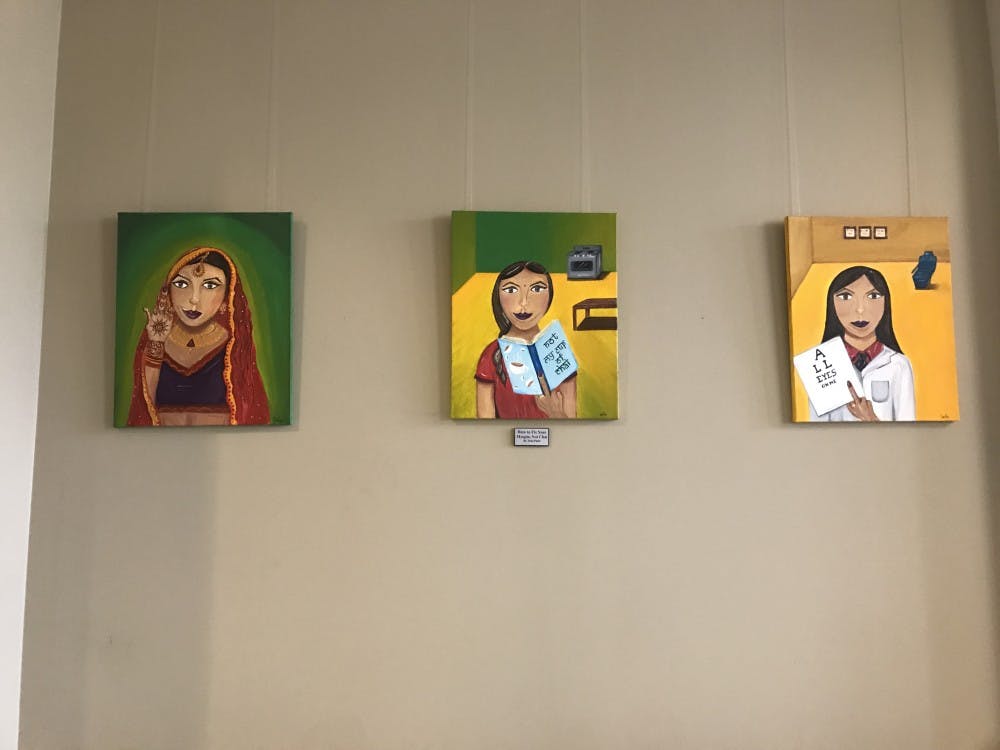Anyone who has taken a stroll through the Honors Residence hall has probably enjoyed the fabulous art hanging on the walls. The Artist in Residence program showcases art produced by Honors College students who are passionate about using visual media to tell their story. I was walking through the other day on my way to class, casually glancing around at all the new art that had just been hung. I saw a woman flipping me off from the wall, and I stopped in my tracks.
The title of the work is "Here to Fix Your Myopia, Not Chai,"and it is three portraits of the same woman in different places in her life and each time flipping off the viewer. First in traditional Indian bridal wear, second relaxing in an empty kitchen and the third at work as an optometrist, holding a sign that says “All Eyes On Me.”

And all eyes certainly are. I don’t know about anyone else, but there’s a certain energy to getting flipped off, especially by a stranger. There’s that offended, excited rush as you wonder whether or not you’re about to get in a fight, and in a way it is incredibly energizing. It’s offensive and attention grabbing, and a great way to start a conversation. And that is exactly what artist Tulsi Patel is trying to do.
Patel, a third-year business economics student in the Honors College, feels the traditional pressures of being an Indian woman, the expectation of maintaining a home on top of work and school, and the emphasis on marriage as the culmination of what makes a successful life.
“Oftentimes,” Patel said of Indian women, “they are reduced to just being responsible for the housework.”
Patel demonstrates in this three-panel piece that marriage is not the end of a woman’s life — “there are goals beyond that,” including that of a successful professional who is not more obligated to make dinner at the end of the night than she is to close her practice and have children.
The point Patel is making is an incredibly salient one, especially at such a large, Southern university, in which our international student population is high. As evidenced by debutante balls in Southern culture, this narrative is cross-cultural, but as everything does, it looks different in each iteration. But Patel recognizes that the pressure she feels here in America is much different that that of women living in more impoverished nations.
“With campaigns such as Girl Rising, girls across the world living in underprivileged or developing areas are encouraged to go to school and make something of themselves,” Patel said.
This is a conversation needs to happen anywhere there are people who need to hear it. The feminist movement here in the U.S. has never been more mobile or vocal than during the Women’s March, but that movement was nearly entirely white. Patel uses the platform afforded to her by the Honors College to try to engage feminists of all walks of life and independent histories.
She, an Indian woman, will go on to be an optometrist. Maybe a wife, maybe a mother, but most important, a scientist and a doctor in the field that she is passionate about. Her life will not end after marriage, as no woman’s should, and she is boldly flipping the bird to anyone who wants to say otherwise. All eyes on her, and we’ll all be seeing incredible things.

